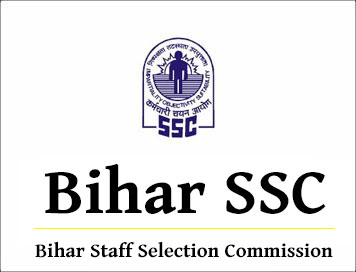📊 कुल अंक ➨ 150
⏰ कुल समय ➨ 2.5 घंटे
━━━━━━━━━━━━━━━━━━━━━━━
विषय निर्धारित अंक
━━━━━━━━━━━━━━━━━━━━━━━
भाषा- हिंदी,अंग्रेजी & संस्कृत ➨ 40
विज्ञान ➨ 10
गणित ➨ 20
पर्यावरण एवं सामाजिक विज्ञान ➨ 10
शिक्षण पद्धति ➨ 10
बाल मनोवैज्ञानिक ➨ 10
सामान्य ज्ञान & करेंट अफेयर्स ➨30
तार्किक ज्ञान ➨ 05
सूचना प्रौद्योगिकी ➨ 05
जीवन कौशल, प्रबंधन & योग्यता ➨ 10
━━━━━━━━━━━━━━━━━━━━━━
कुल 150 अंक
━━━━━━━━━━━━━━━━━━━━━━
🎯 महत्वपूर्ण टॉपिक
▪️भाषा- हिंदी, संस्कृत, अंग्रेजी ➨ व्याकरण एवं भाषा की सामान्य समझ
▪️गणित ➨ दशमलव, गणितीय संक्रियाएं, अंकीय क्षमता संबंधी ज्ञान, ब्याज, भिन्न, स्थानीय मान, प्रतिशत, गुणनखंड, ऐकिक नियम, बीजगणित, क्षेत्रफल औसत, आयतन, अनुपात, सांख्यिकी, ज्यामिति, सर्वसमिका
▪️विज्ञान ➨ बल, गति, ऊर्जा, दूरी, प्रकाश, जीव जंतु, साफ सफाई, स्वास्थ्य, पर्यावरण, प्राकृतिक संसाधन, पदार्थ, मानव शरीर
▪️सामाजिक अध्ययन एवं पर्यावरण ➨ पृथ्वी, नदियां, पर्वत, पठार, अक्षांश, देशांतर, सागर, महासागर, सौरमंडल, भारत का भूगोल, संविधान, स्वतंत्रता संग्राम तथा समाज सुधारक, शासन व्यवस्था, सड़क यातायात, हमारी संस्कृति, अर्थव्यवस्था, पर्यावरण संरक्षण, आपदा प्रबंधन
▪️शिक्षण कौशल ➨ शिक्षण विधियां, शिक्षण कौशल, अधिगम के सिद्धांत, वर्तमान भारतीय समाज और प्रारंभिक शिक्षा, प्रारंभिक शिक्षा के नवीन प्रयास, समावेशी शिक्षा, मापन एवं मूल्यांकन, शैक्षिक प्रबंधन एवं प्रशासन, पठन कौशल
▪️बाल मनोविज्ञान ➨ बाल विकास को प्रभावित करने वाले कारक, वैयक्तिक भिन्नता, सीखने के लिए वातावरण, कक्षा शिक्षण, दिव्यांग छात्रों हेतु शिक्षा
▪️सामान्य ज्ञान & करंट अफेयर्स ➨ राष्ट्रीय अंतरराष्ट्रीय समसामयिक घटनाएं, स्थान, व्यक्तित्व, रचनाएं, खेलकूद, कला एवं संस्कृति
▪️तार्किक ज्ञान ➨ प्रतीक एवं अंक, पहेलियां, श्रृंखला, महत्वपूर्ण तर्क, घन संख्या श्रृंखला, दिशा ज्ञान, कैलेंडर, कोडिंग डिकोडिंग, द्विआधारी तर्क
▪️सूचना तकनीकी ➨ शिक्षण कौशल विकास, कक्षा शिक्षण तथा विद्यालय प्रबंधन में कंप्यूटर का योगदान, स्मार्टफोन, इंटरनेट, डिजिटल शिक्षण सामग्री, ओपन एजुकेशनल रिसोर्स
▪️जीवन कौशल प्रबंधन एवं अभिवृत्ति ➨ व्यावसायिक आचरण एवं नीति, प्रेरणा, शिक्षक की भूमिका, मानवीय एवं संवैधानिक मूल्य, पुरस्कार एवं दण्ड
━━━━━━━━━━━━━━━**━━━━━━━━━━━━━━━
















